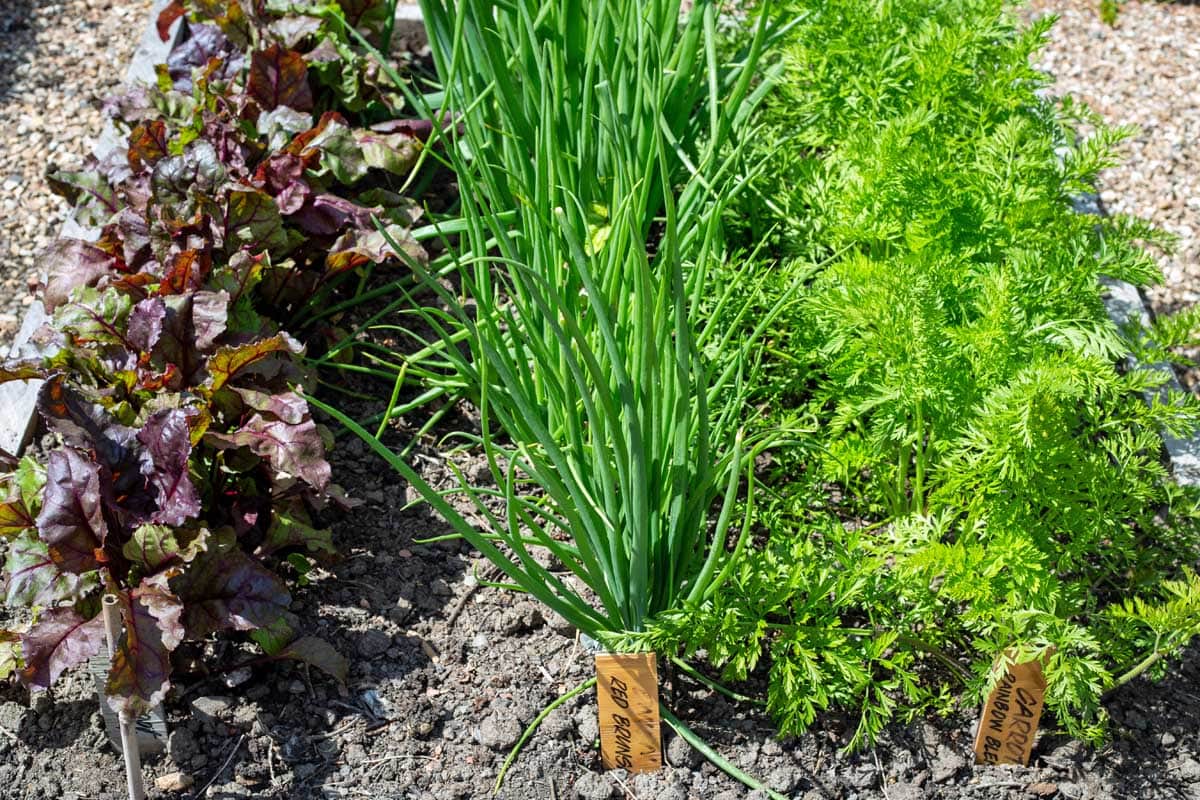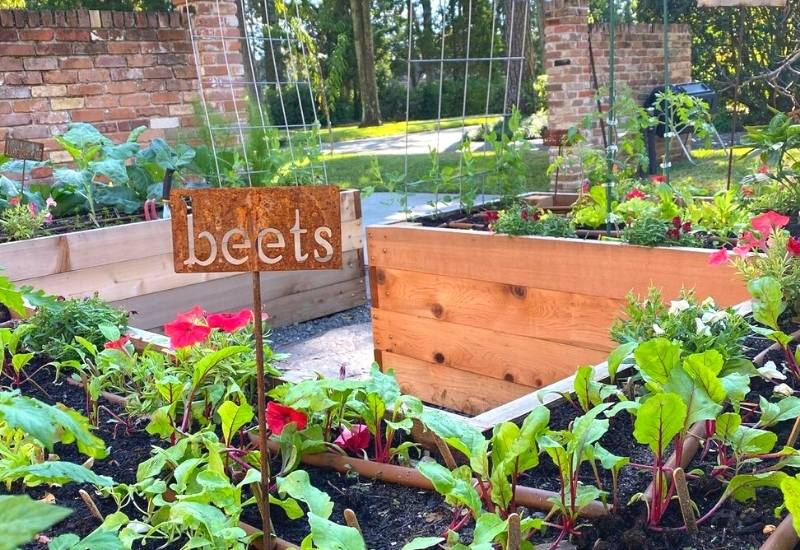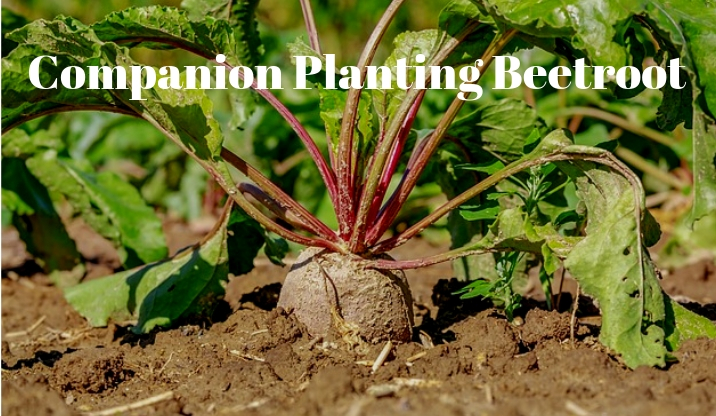The Carrot And Beet Companion Planting Guide That Will
The Carrot and Beet Companion Planting Guide That Will
Help You Grow a Healthy and Bountiful Harvest
Carrots and beets are two popular root vegetables that can be easily grown together in the garden. They have similar growing requirements and can help to deter pests and diseases from each other. In this guide, we will discuss the benefits of companion planting carrots and beets, as well as some of the best plants to grow with them.
Why Companion Plant Carrots and Beets?
There are several reasons why you might want to companion plant carrots and beets. First, they have similar growing requirements. Both carrots and beets need full sun, well-drained soil, and regular watering. They also both prefer cool weather, so they can be planted in the spring or fall.
Second, carrots and beets can help to deter pests and diseases from each other. Carrots are a good trap crop for carrot flies, which can also damage beets. Beets, on the other hand, can help to repel aphids, which can attack carrots.
Finally, companion planting carrots and beets can help to improve the overall health of your garden. The different plants will help to improve the soil quality and attract beneficial insects. This can lead to a healthier and more productive garden.
What Plants Grow Well with Carrots and Beets?
There are many different plants that can be grown with carrots and beets. Some of the best companions include:
- Lettuce: Lettuce is a cool-season crop that can help to shade the soil and prevent weeds from growing. It can also help to attract beneficial insects.
- Radishes: Radishes are another cool-season crop that can help to improve the soil quality. They can also help to deter pests from carrots and beets.
- Herbs: Herbs, such as mint, dill, and parsley, can help to repel pests and improve the flavor of carrots and beets.
- Brassicas: Brassicas, such as broccoli, cabbage, and kale, can help to attract beneficial insects and improve the soil quality.
- Legumes: Legumes, such as beans and peas, can help to fix nitrogen in the soil, which can benefit carrots and beets.
How to Companion Plant Carrots and Beets
When companion planting carrots and beets, it is important to consider the size of the plants and the amount of space they need. Carrots need about 2 inches of space between plants, while beets need about 3 inches of space. It is also important to plant carrots and beets in full sun.
If you are planting carrots and beets in a garden bed, you can interplant them with other companion plants. For example, you could plant lettuce and radishes between the rows of carrots and beets. You could also plant herbs, such as mint, dill, or parsley, around the edges of the garden bed.
If you are planting carrots and beets in containers, you can choose a container that is at least 12 inches deep and wide. You can plant several carrots or beets in the same container, as long as you leave enough space between them for the roots to grow.
Conclusion
Companion planting carrots and beets is a great way to improve the health and productivity of your garden. By planting these two vegetables together, you can help to deter pests, improve the soil quality, and attract beneficial insects. With a little planning, you can easily grow a healthy and bountiful harvest of carrots and beets.
Carrots and beets are two popular root vegetables that can be grown together in the garden. They have similar growing requirements, such as needing full sun and well-drained soil. However, there are some companion plants that can help improve their growth and health.
One good companion plant for carrots is radishes. Radishes grow quickly and have shallow roots, so they won't compete with carrots for space or nutrients. They also release a chemical that helps to repel pests, such as carrot flies.
Another good companion plant for carrots is lettuce. Lettuce doesn't shade out carrots, and it helps to suppress weeds. It also attracts beneficial insects, such as ladybugs, which help to control pests.
Beets can be grown with a variety of companion plants, including onions, bush beans, and marigolds. Onions help to repel pests, such as aphids and carrot flies. Bush beans provide shade for beets, and they also help to improve the soil nitrogen levels. Marigolds help to repel nematodes, which can damage beet roots.
To learn more about companion planting for carrots and beets, visit Garden Wiki. This website provides a comprehensive list of companion plants, as well as information on the benefits of companion planting.
FAQ of companion plants for carrots and beets
Question 1: What are some good companion plants for carrots?
Answer: Carrots grow well with a variety of plants, including:
- Onions, shallots, and other members of the allium family. These plants release sulfur compounds that deter pests such as carrot root fly.
- Lettuce, kale, and other leafy greens. These plants help to suppress weeds and shade the soil, which can help to prevent carrot root maggots.
- Radishes. Radishes grow quickly and mature early, so they can be planted alongside carrots to help loosen the soil and deter pests.
- Marigolds. Marigolds are known for their insect-repelling properties, and they can help to protect carrots from pests such as carrot flies and aphids.
- Beans. Beans are nitrogen-fixing plants, which means they can help to improve the soil quality for carrots.
Question 2: What are some plants that should not be planted near carrots?
Answer: Some plants that should not be planted near carrots include:
- Fennel. Fennel produces a strong odor that can stunt the growth of carrots.
- Cucumbers. Cucumbers and carrots compete for the same nutrients, so planting them together can lead to poor growth.
- Potatoes. Potatoes can harbor the same pests and diseases as carrots, so planting them together can increase the risk of infection.
- Tomatoes. Tomatoes can release a chemical called solanine that can inhibit the growth of carrots.
- Spinach. Spinach can shade carrots and prevent them from getting enough sunlight.
Question 3: What are the benefits of companion planting carrots and beets?
Answer: Companion planting carrots and beets can offer a number of benefits, including:
- Improved pest control. Some companion plants, such as marigolds and nasturtiums, can help to repel pests that damage carrots and beets.
- Increased pollination. Some companion plants, such as tomatoes and peppers, can attract pollinators that help to improve the pollination of carrots and beets.
- Improved soil quality. Some companion plants, such as beans and peas, are nitrogen-fixing plants, which means they can help to improve the soil quality for carrots and beets.
- Increased yields. Companion planting can help to increase the yields of carrots and beets by providing them with the nutrients and support they need to grow.
Question 4: How far apart should carrots and beets be planted?
Answer: Carrots and beets should be planted about 2 inches apart. This will give them enough space to grow without crowding each other.
Question 5: What is the best time of year to plant carrots and beets?
Answer: Carrots and beets can be planted in the spring or fall. They prefer cool weather, so it is important to plant them after the last frost.
Image of companion plants for carrots and beets
Here are 5 different images of companion plants for carrots and beets:
- Carrots and tomatoes: Tomatoes help to deter carrot flies, which are a common pest of carrots.
- Carrots and lettuce: Lettuce helps to suppress weeds and attract beneficial insects, both of which are beneficial to carrots.

- Beetroot and onions: Onions help to repel pests, such as carrot root fly and aphids, which can damage beetroot.

- Beetroot and beans: Beans fix nitrogen in the soil, which is beneficial to beetroot.

- Beetroot and spinach: Spinach helps to suppress weeds and attract beneficial insects, both of which are beneficial to beetroot.

Post a Comment for "The Carrot And Beet Companion Planting Guide That Will"